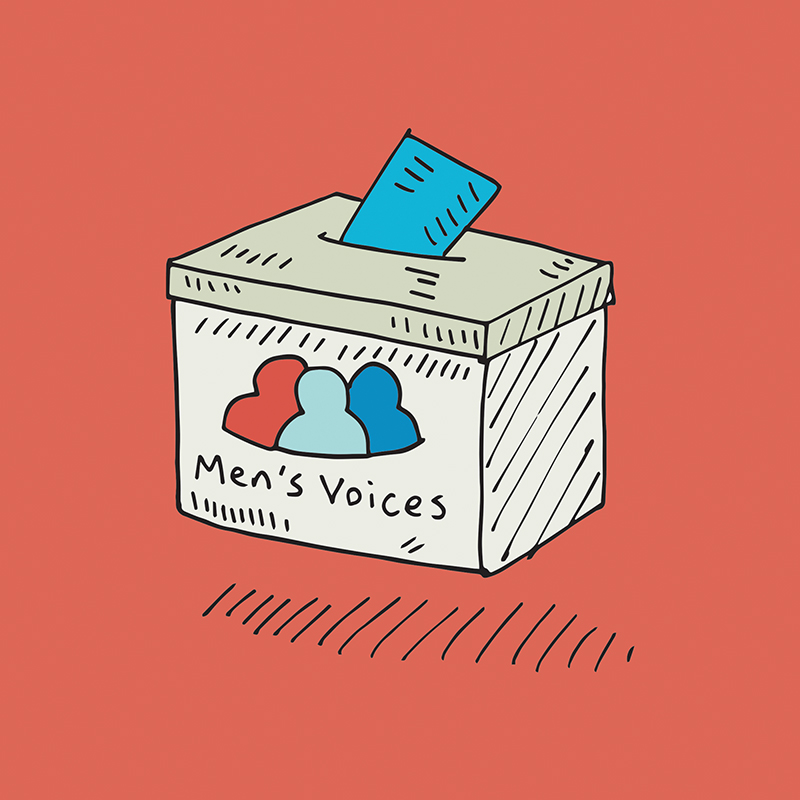Feminist radio show surveys men for episode on mental health and toxic masculinity
When CJLO’s Women’s+ Collective decided to put together an episode on toxic masculinity and mental health for their bi-weekly radio show, Femme AM, they knew they needed to include men’s voices.
Recognizing that people may be wary of speaking on-air about their mental health struggles, Lily Roy, a Women’s+ Collective volunteer, thought the best option would be to set up suggestion boxes at five locations around the Loyola campus. The boxes were set up from Jan. 21 to Feb. 8, allowing men and male-identifying people to leave an anonymous written comment.
“You could say whatever you wanted; just let it out,” Roy said.
Along with each suggestion box was a poster asking men and male-identifying people if they thought there were adequate services available in the community for men who face harassment and abuse. It also asked how they deal with negative emotions such as anger, sadness and stress. The results were discussed during the Feb. 8 episode of Femme AM.
Toxic masculinity is a loosely defined term, something Roy and her co-hosts, Sophia Hirst Barsoski, Cassie Doubleday and Megan Flottorp, acknowledged at the beginning of the episode.
They noted that academic studies use the term “hegemonic masculinity” instead, something Marc Lafrance, a professor from Concordia’s department of sociology and anthropology, concurs with.
“I tend to go with ‘hegemonic masculinity’ when I’m in an academic context,” he said, adding that the term “toxic masculinity” was constructed largely through popular media.
Lafrance pointed out that hegemony still means power and dominance, and in this context, refers to the idea that certain traits typically associated with men, such as emotional stoicism and a desire to dominate, when exhibited at an extreme level, can lead to violent consequences for those around them and mental health issues for the men themselves.
Femme AM’s suggestion boxes yielded six responses, which Roy said was more than she expected.
Two responses described the triage system at Concordia’s mental health services as inadequate, suggesting an overall lack of mental health resources for Concordia students. Another agreed that there is an expectation for men not to show emotional vulnerability or talk about their feelings.
One response claimed a prevailing narrative that cisgender, heterosexual men aren’t affected by social inequality can lead them to disregard their own feelings and develop mental illnesses.
Roy said this was the most difficult response for her to read. “The goal of social justice, for me, was never to take away someone’s voice. It was just to give voices to other people,” she said during the episode.
According to Roy, the suggestion box project was intended to be a conciliatory gesture towards men who think feminism is anti-men or that it obscures important men’s issues.
“We’re pretty unanimous here at Femme AM that feminism is for everyone and that it benefits everyone,” Roy said. “I think the idea of ‘us versus them’ is foolish.”
Allison O’Reilly, the co-founder of the Women’s+ Collective, said they remain primarily focused on the goal of increasing the involvement of self-identifying women and other gender minorities in community radio.
“Most of our discussions will be about women and gender minorities,” O’Reilly said.
The Women’s+ Collective will be holding an informational meet-and-greet on Feb. 26 from 4 p.m. to 6 p.m. at the Concordia Student Union’s downtown office in H-711.
Graphic by Zeze Le Lin




